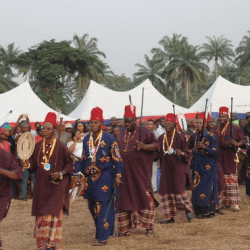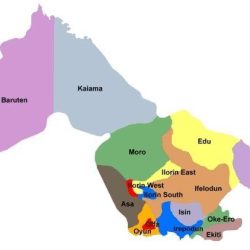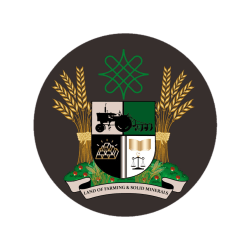Benue State capital, Makurdi, is an administrative, industrial and commercial hub, the second most populated area in the state after Gboko.
The first traditional chief of Makurdi town was actually a non-Tiv, a Yoruba/Nupe man from Kwara, a long-standing resident, known as Audu dan Afoda (1913 – 1946)
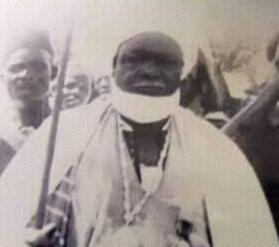
He was born in 1863 in Bida, Niger State to Muhammad Afoda who was an indigene of Ilorin, Kwara State.
Audu’s father had relocated from Ilorin and settled at Bida.
Audu was the fourth among his father’s four children.
He got married to four wives and one cconcubine and had nineteen children.
As at 1927 he was ruling alongside others like Jato Aka, the chief of Turan.
Hausa and others had settled in Makurdi for menial works from European colonial contractors and for trading.
Afoda it appeared worked earlier as a messenger or interpreter to the British colonial people as some of the Hausa residents did.
He was said to be rich and nicknamed Mai Kudi, a Hausa term for man of money.
It’s said that it’s from the term Mai Kudi that came the word Makurdi, the Benue State capital.
Afoda’s source of money was unknown whether from business, contract work with Europeans, embezzlement of funds as chief or other means.
Audu could speak many languages. This attracted him to the British so he might assist them with interpretation.
The British needed interpreters because they didn’t understand the languages of the indigenes. The indigenes too didn’t understand the language of the British, making interpreters like Audu to become handy.
During the later stage of his reign he had wanted to extend his rule outside of Makurdi metropolitan area to cover the neighbourhoods.
It never happened. The move was resisted by the immediate indigenes, the Ihyarev clan of Tiv nation.
Audu died on 21 July 1946.
When he died a move to install another non-Tiv chief of Makurdi met stiff resistance.
By then numerous Tiv people returned from World War II where they fought Germans, Japanese and other allied forces hand in hand with the British. It Dawn on Tiv war veterans that the British were not super persons but were also like any other person. This orientation and similar factors made the Tiv to forcefully reject British imperialism on all fronts.
In 1927, the first Ijir Tamen, the Tiv topmost administrative council meeting was held but it was Audu dan Afoda, the then Makurdi chief that had to chair it. He was considered the highest ranking chief due to the importance of Makurdi town.
These issues angered the Tiv people and increased their nationalism.
As agitations for self rule continued educated elites of the day like Orodi Ugba, Akiga Sai and Iyorkyar Ako led the demands to have a Tiv person as Tor Tiv.
Jako Aka of Turan was the first to raise the issue of demand for a Tor Tiv officially in the Ijir Tamen of May, 1938 in Gboko.
Also when a conference of chiefs was to be held in Kaduna in same year, the Tiv took advantage of the event to demand that a Tor Tiv should be chosen to represent them, but the colonial government refused.
In 1944, during a visit to Gboko, the chiefs confronted Governor Richard with the demand for the appointment of a Tor Tiv and he finally accepted .
After series of negotiations, Makir Dzakpe was nominated on 19 September, 1946 as the first Tor Tiv.
The government accepted the people’s choice.
Orchivirigh Makir Zakpe, Tor Tiv I (1946 to 1956) ruled from September 19, 1946 to October 11, 1956.
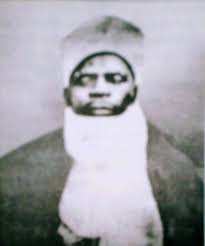
He was Born on April 11, 1896, an indigene of Mbayar, Nyumangbagh, Mbaduku, Kunav, Vandeikya Local Government, Benue State.
Makir joined the Nigerian army in Calabar in 1918.
He was posted to the Third Battalion of the Nigeria regiment where he served in the British’s West African Frontier Force.
He fought in the Second World War (1939-1946) and was promoted to the rank of Battalion Sergeant Major on which he retired after 18 years of active service.
Makir worked in the Jema’a Native Authority Police, Kafanchan and later transferred to the Tiv Native Authority, Gboko.
During this time, he supported the creation of the office of Tor Tiv, while serving as Chief of Police of the Tiv Native Authority.
Chief Gondo Aluor was made the deputy Tor Tiv.
He died during a brief illness at the age of 60 years, on October 11, 1956 and was buried at Abagu, Gboko on October 14, 1956.
Tor Tiv Makir Dzakpe was very approachable as a King.
He was an effective spokesman of the Tiv people, a fearless and frank Tor Tiv.
In the 1950s the Tiv were demanding for more social amenities like schools , hospitals , roads and more of the trappings of Western Civilization and Makir was the most vocal voice of the Tiv in these demands from the colonialists.
